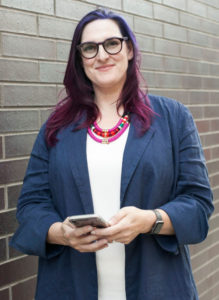Is this the year you vow to take better control of your small business’ finances once and for all? That’s great and I commend you!
I don’t know your business finance-savvy baseline and where you’re coming from exactly. But if you’re like many of the business owners I work with each day, you’ll benefit from a laser focus on three key areas.
Cash (flow) is king
Money makes the world go around, and it makes your business go, too. If you don’t have enough of it, you’ll be stressed and obsessed with getting more. If your business seems to have cash a-plenty, you’ll be tempted to spend and squander it.
Do you check your bank account balance each day to see if you have enough cash for what your business needs? I have news for you: That’s a poor indicator of how your business is actually doing. And it certainly won’t tell you if you run a profitable company.
It’s more important to understand cash flow. If you don’t have a handle on how money comes into and goes out of your small business, you can’t make informed decisions. This includes the ability to pay yourself a meaningful salary and being able to set aside money for profit.
Better cash management is by the books
You won’t be surprised to know, will you, that a bookkeeper believes effective cash management starts with good bookkeeping practices?
Here are three bookkeeper-approved, real-world and road-tested cash-management tips that I swear by — and sometimes I do swear when I talk about them. They’re critically important.
1. Label each accounting transaction in a way that makes sense to you.
When you track your income and expenses in a chart of accounts, it lets you get a handle on your cash flow and make smarter decisions. But if you try to shove those transactions into pre-existing categories, it will feel like the chart of accounts gives you less visibility into your finances — not more.
One of the first things I do when I start working with a new bookkeeping client or when I meet with a small business owner who is in our Profit First program is to have them walk me through their books. I always ask if they’re comfortable with the categories in their chart of accounts. Often, they say they’re not and that these are default categories in the accounting software they use.
Kick default accounting software categories to the curb. Use categories that mean something to you. Then make that language clear to your in-house or external bookkeeper and CPA.
All too often, those default categories can seem like another language. Is there a difference between categorizing something as “Office Supplies” versus “Business Expenses?” I certainly don’t know. Maybe you call your retail sales “Trunk Shows” or “Online Sales” but your accounting system calls this “Product Sales.”
The vocabulary around how you categorize expenses and income can be unique to your business. You don’t have to speak your accounting software’s (or your accountant’s) language. Kick default accounting software categories to the curb. Use categories that mean something to you. Then make that language clear to your in-house or external bookkeeper and your CPA. Get used to saying This is what we call it here and stick with meaningful category language.
With Profit First, you assign a “job” and a “place to live” for each dollar that comes into your business.
2. Give each dollar a “job” and a “home.”
Do you know if you can afford to buy new office furniture or a computer or hire a virtual assistant?
Many small business owners I talk with don’t know the answers to these questions, so they just guess. They’re leery of “forecasting” and multi-tab spreadsheets with calculations they don’t understand, so they run screaming in the other direction. They default to trusting their gut to make many business decisions. And they confess they’re not confident they’re doing the right thing.
If this sounds like you, let me introduce you to the cash management system called Profit First. It’s based on the book of the same name by Mike Michalowicz. (You can “meet” Mike on this video.)
Simply put, with Profit First you assign a job and a home for each dollar that comes into your business.
For example, how do you know if you can afford to rent a $1,000/month office space? Start by opening a separate bank account and transferring $1,000 into it each month. If you continue to make the transfer while meeting other obligations, you’ll know you can afford the new monthly expense. You’ll also have a buffer account to pay rent out if your business is seasonal or if you experience lean times.
When each dollar has a job and a home, you can plan for future purchases. You’ll understand your budget without having to master complicated spreadsheets. You won’t have to wait for your accountant to run a report. You’ll simply look at that separate office space bank account (or whatever expense you try this experiment with) to know where you stand.
I’m a business coach and Profit First Professional who is certified in the Profit First methodology. I can help you get you focused on better cash flow management and build a more profitable business, too.
3. Fight business finance fear with knowledge.
As humans, we’re afraid of the unknown. For many business owners, understanding their business’ books and bookkeeping processes falls squarely into that category.
One of the best ways to become cash management-savvy and chip away at business finance fear is to find someone you like and trust to help you.
There are many new voices “out there” who can teach you the basics of finance, including:
- Chelsea Fagan and Lauren Ver Hage, co-authors of The Financial Diet: A Total Beginner’s Guide to Getting Good with Money
- Bola Sokunbi who wrote Clever Girl Finance: Ditch Debt, Save Money and Build Real Wealth
- And because it bears repeating, check out Mike Michalowicz, author of the best-selling book Profit First: Transform Your Business from a Cash-Eating Monster to a Money-Making Machine
You can also become smarter about business finances if you:
- Talk regularly with a friend who runs a successful business.
- Hire a (savvy) virtual bookkeeper for a monthly check-in. (Moxie offers this service, BTW.)
- Consult with your CPA about concepts you don’t understand.
- Reach out to your accounting software’s support team with your questions.

I’d like to add one more name to the list — and someone who may be more accessible to you: Yours truly. I’m a business coach and a Profit First Professional. This means I’m certified in the Profit First methodology. I can help you get you focused on better cash flow management. I can help you build a more profitable business, too.
Whoever you choose, look for experts whose ideas resonate with you. Approach learning about your finances from a place of curiosity rather than guilt or shame.
Make this year the year you’ll master the money that comes into and goes out of your small business. It’ll make such a difference for 2020 and in the years to come.
And let’s keep in touch, OK? When you share your email address with Moxie, you’ll get my cash flow management and profit-building tips each month.
